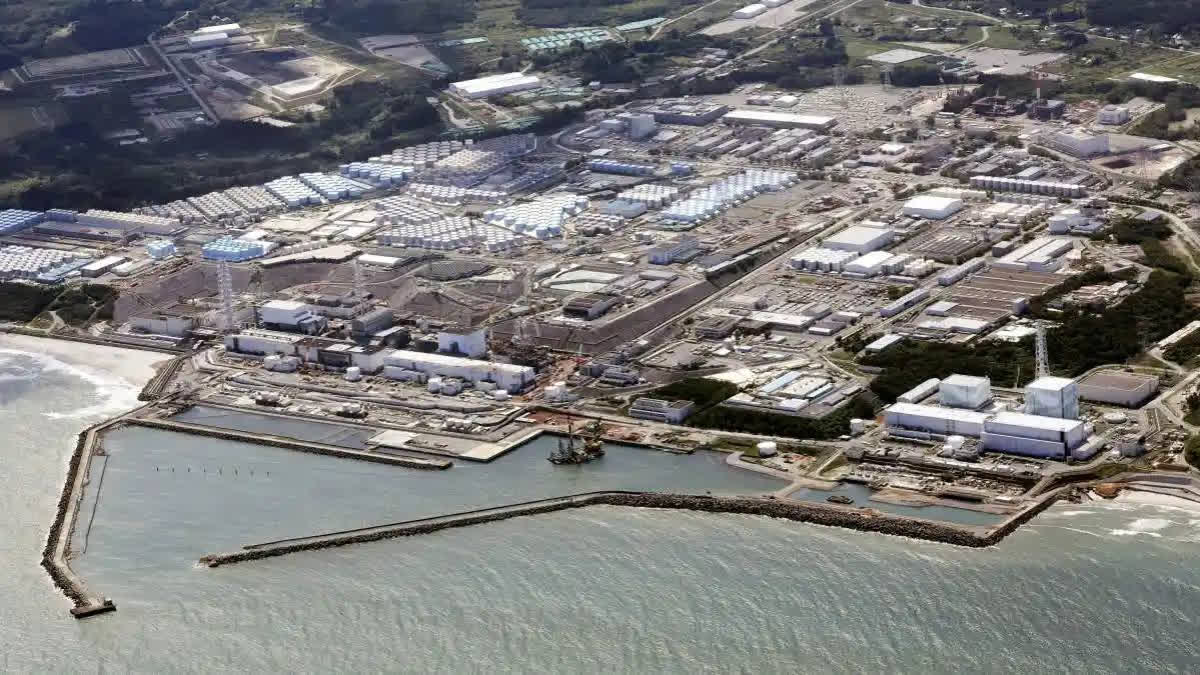Fukushima (Japan): Highly radioactive water leaked from a treatment machine at the tsunami-hit Fukushima Daiichi nuclear power plant, but no one was injured and radiation monitoring shows no impact to the outside environment, the utility operator said Thursday.
A plant worker found the leak Wednesday morning during valve checks at a SARRY treatment machine designed to remove cesium from the contaminated water, the Tokyo Electric Power Company Holdings said. The machine has been idled for maintenance work.
An estimated 5.5 metric tons (6 tons) of radioactive water — enough to fill two ordinary backyard swimming pools — leaked out through an air vent, leaving a pool of water on an iron plate outside and seeping into the soil around it, TEPCO said, but no radioactive water escaped the compound.
It's not clear when the machine began leaking, but TEPCO said that no problems were detected in an inspection Tuesday.
The leak may have been caused by valves accidentally left open while workers flushed the machine with filtered water. TEPCO said that 10 of 16 valves that should have been closed were left open during the flushing, and the leak stopped when the valves were closed.
Radiation levels around the plant and inside gutters on the compound have showed no increase.
The filtering machine is part of TEPCO's controversial wastewater discharge project, which began in August. The Fukushima Daiichi plant suffered triple meltdowns following the 2011 quake and tsunami.
The discharges, which are expected to continue for decades, have been strongly opposed by fishing groups and neighboring countries, including China, which immediately banned imports of all Japanese seafood.
The latest leak comes only months after another accidental leak at a separate treatment facility called the Advanced Liquid Processing System, or ALPS.
In that accident, four workers were sprayed with radioactive liquid waste while cleaning the ALPS piping. Although two of them were briefly hospitalized for skin contamination, none showed symptoms of poisoning.
Read More



